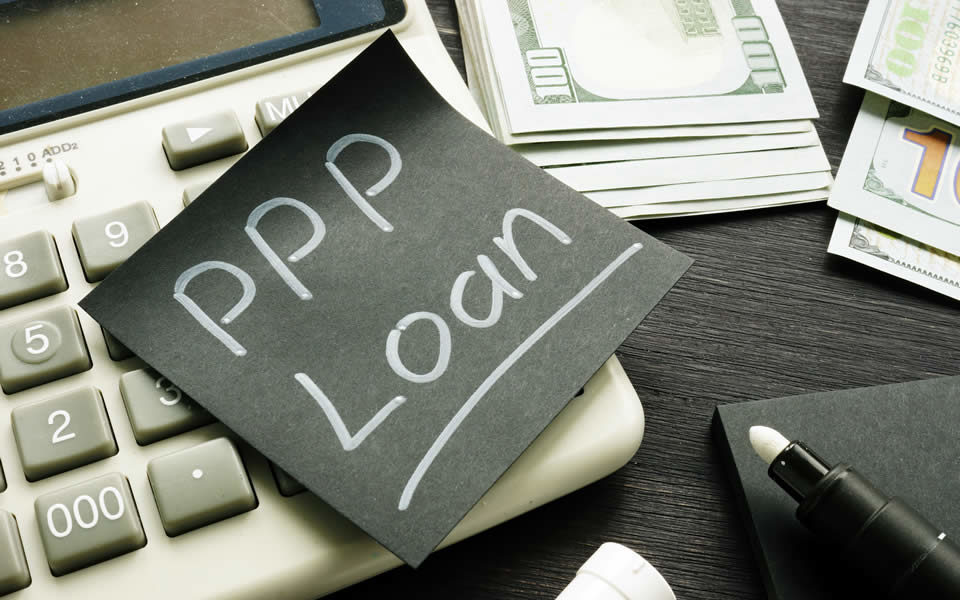Tax Considerations of PPP Loan Forgiveness
By William Boiman, Manager, Tax & Business
Taxpayers who received loans through the Paycheck Protection Program (PPP) should be aware of the critical tax consequences relating to the forgiveness of these loans.
The PPP was created by Section 1106 of the Coronavirus Aid, Relief, and Economic Security Act (CARES Act), which provides that an eligible recipient of a covered loan could qualify for forgiveness of the indebtedness if certain criteria are met. What’s more, the forgiven loan is not included in taxable income.
Initially, this sounded like a win-win situation for taxpayers: free money to help them get through the unexpected economic challenges created by the coronavirus pandemic. The Internal Revenue Service (Service), however, threw a curveball when it released Notice 2020-32 and decisively ruled that expenses allocable to the forgiven PPP loan proceeds are not deductible.
While the Service acknowledges that the expenses at issue would generally qualify as ordinary and necessary business expenses, it quickly cites Section 265 of the Internal Revenue Code, which disallows the deduction of expenses relating to tax-exempt income (a term that is broadly defined). This disallowance aims to avoid a double benefit for the taxpayer by preventing a deduction associated with income that was not taxed. To solidify its position, the Service also cites judicial precedent and other guidance that applies Section 265 in different contexts.
The Service’s position in the Notice essentially negates the benefit of having the loan forgiveness excluded from taxation. Disallowing the related expenses has the same effect as taxing the forgiven indebtedness. Let’s also consider that most PPP funds were used for payroll costs. Treating these expenses as non-deductible will cause taxpayers to miss out on credits and other deductions, such as the qualified business income deduction, which are based on payroll expenses.
The Service’s controversial stance has drawn a lot of attention, especially from tax professionals who have raised many arguments against it. A simple reading of Section 265 weakens the Service’s case, as it refers to “exempt” income while the CARES Act “excludes” the income from taxation. But leaving technical soundness aside, Notice 2020-32 is not aligned with congressional intent, a sentiment that many members of Congress have echoed.
In May 2020, Senate Finance Committee Chairman Chuck Grassley (R-Iowa), Ranking Member Ron Wyden (D-Ore.), and House Ways & Means Committee Chairman Richard E. Neal (D-Mass.) wrote to Treasury Secretary Steven Mnuchin, requesting that the department change its flawed interpretation. Specifically, the lawmakers wrote, “Providing assistance to small businesses, only to disallow their business deductions as provided in Notice 2020-32, reverses the benefit that Congress specifically granted by exempting PPP loan forgiveness from income.” Also, as recently as August 4, 2020, the American Institute of Certified Public Accountants urged Congress in a letter to House Speaker Nancy Pelosi (D-Cali.) and Senate Majority Leader Mitch McConnell (R-Ky.) to “include a technical correction addressing the tax treatment of loan forgiveness under the Paycheck Protection Program (PPP)” in its next round of legislation.
Will Congress act upon the various requests to allow the deductibility of expenses associated with forgiven PPP loans? Only time will tell. However, while we wait for an answer, taxpayers, especially those with fiscal year ends, are left with tough decisions. For instance, should a fiscal year taxpayer whose return is coming due defer applying for loan forgiveness until Congress issues a “fix”? Just when uncertainty seems to be the norm, Notice 2020-32 has created additional ambiguity for business owners.
Please contact your Marcum tax professional for further information and current developments.
Coronavirus Resource Center
Have more questions about the impact of the coronavirus on your business? Visit Marcum’s Coronavirus Resource Center for up-to-date information.








